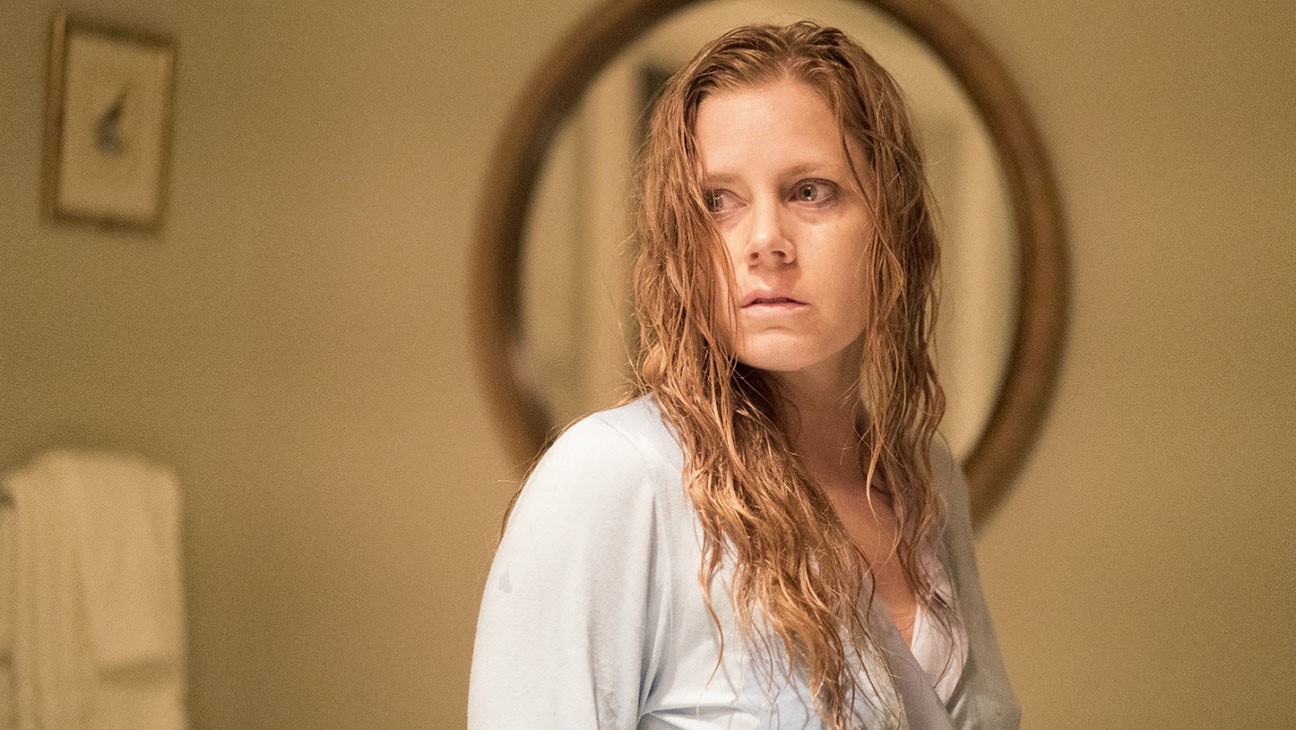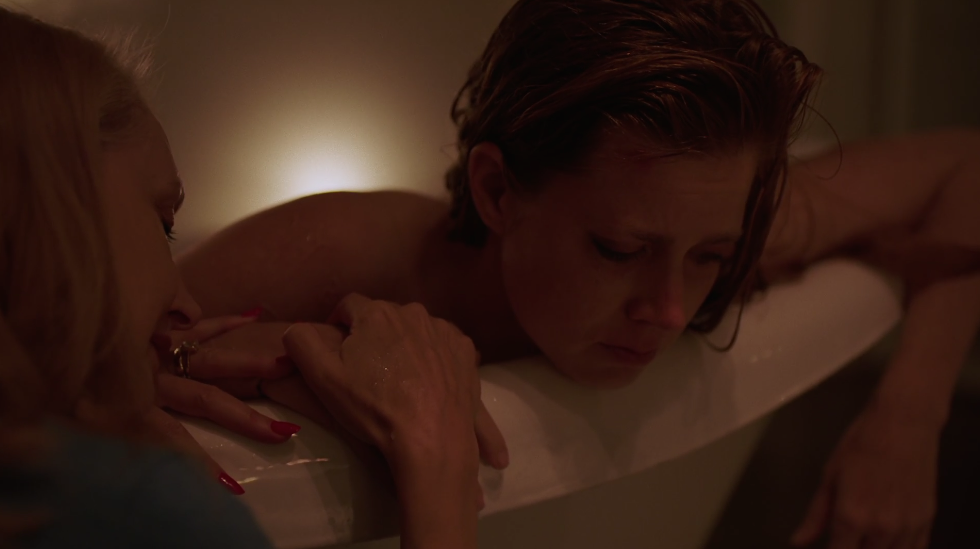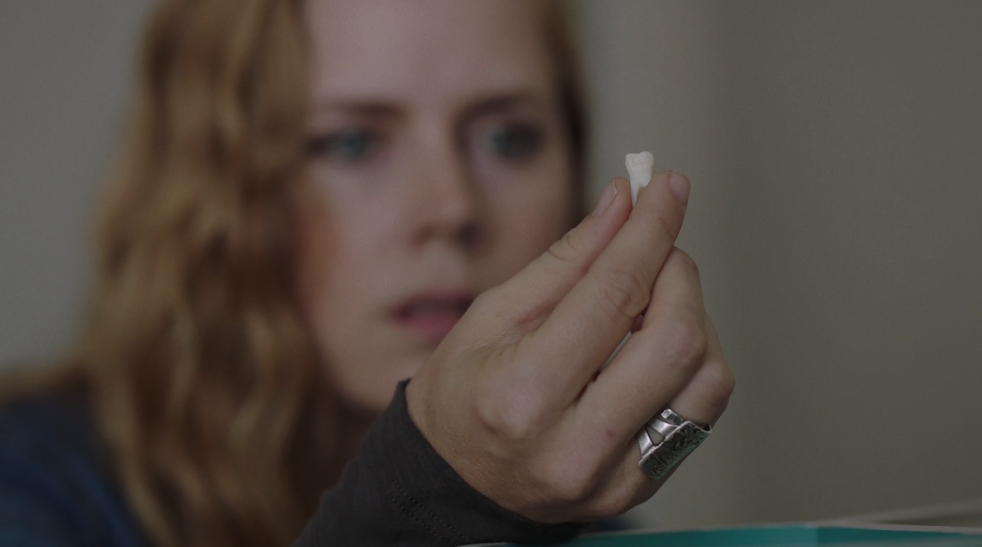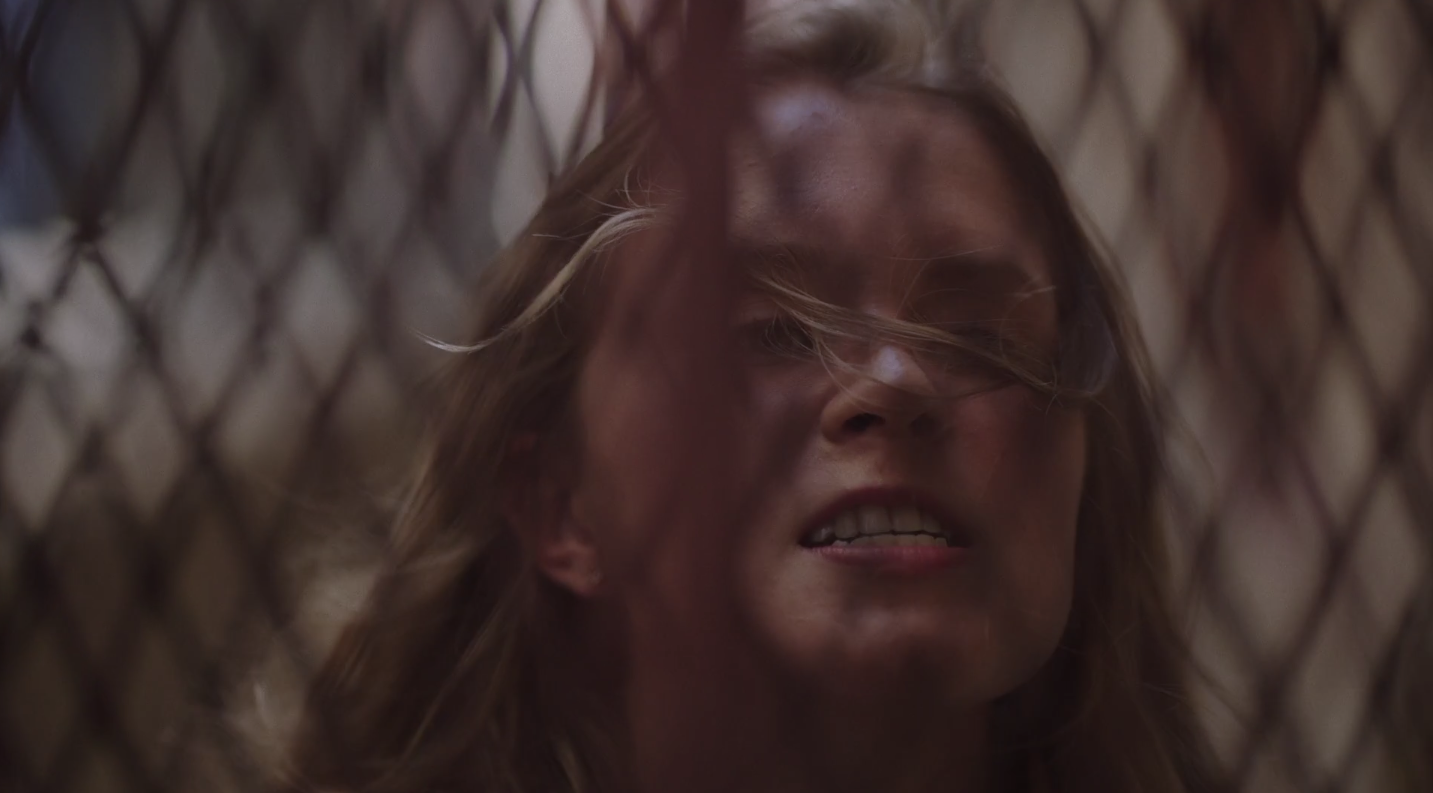by Chris Feil

Sharp Objects has come to its conclusion, bringing with it some scratched heads and hesitant praise wondering when we would be served some real clues on the identity of its killer. Meanwhile it built it’s own slow burn reveals from the inside of Amy Adams’ Camille, leading to a firestorm of consequence and context in its final few episodes that had nothing and everything to do with who killed those girls.
For those of us who had already read Gillian Flynn’s source novel, we also watched the unfamiliar audience as we waited for the rug to pulled out from under them. We knew this was never to be a show built on closing cliffhangers to maximize bingeability and serve standard genre water cooler moments. But its bombshell final moment did just that and cruelly so, giving a conditioned audience the moment it craves the very second it completes; there is nothing more to come, we just have to reconcile its cruel dispatch. In some ways, Sharp Objects has challenged the serialized medium, or at least how we consume and engage with it.

In the end the murder mystery at its center was mostly set dressing for its damaged character study, somewhat how Flynn’s Gone Girl examined a particular psychosis within the framework of a thriller. And those murders were symptomatic of the hidden family secret that deceptively reveals itself to have been the main plot all along. Ultimately Jean Marc-Vallée has crafted a emotional rubix cube of a miniseries, slowly folding all of its information into a tapestry of memory and trauma - it makes a whole lot more sense once you have the full picture.
Yet this final week began hurtling toward cataclysm, with Camille arriving back at her mother’s home for a family feast. John Kelley’s arrest has Adora elated and Amma is nearly catatonic, declaring herself Persephone queen of the Underworld. At the notion of Camille rescuing Amma away to St. Louis, Adora snaps quickly into poisonous caregiver and shuttles her upstairs. Camille in turn rescues Amma by playing sick herself, tricking her mother into her willing nature of abuser saint.

We watch along with Camille as Adora prepares her mix, aware that Camille’s submission to her mother (no matter how protective of Amma the act is) is its own kind of self-abuse. Amy Adams’ performance all season has been one of her most physically precise, using her posture and brittle expressiveness to demonstrate the corrosive push and pull of her trauma. Here she gets something devastatingly right about the cycle of abuse: the cruel comfort of familiarity when pain returns. How much of her childlike response to her mother’s “nurturing” is performance for Adora and how much is a genuine tide overtaking Camille? Wisely, brutally, the actress means to keep us uncertain.
Such dualities are also reflected in Patricia Clarkson’s performance as she continues to poison her daughter for the rest of the episode. A shroud of peace falls over Adora as she positions herself as caretaker, the actress becoming a glazed spectre of emotionally monotone warmth. But how much of Adora’s satisfaction also comes from the simultaneous punishment she doles out? Rather than trying to clarify the mindset of Munchausen by Proxy, Clarkson embraces Adora’s actions for their full unfathomability.
Camille had urged Amma to run for help for naught, all while Detective Willis pieces together what is going on in the house. As Camille comes closer to death, a toxic flashing of police lights invades the room. Her dead sister visits her as Willis and Frank Curry arrive to her rescue, and a discovered pair of pliers implicates Adora in that murder mystery we’ve forgotten about. And yet, Camille scarcely feels saved.

In the fallout, Amma’s rescue comes as promised. Camille resets her sister in a happy life in St. Louis in a serene montage of moments that recall the frightening fractures of Camille’s past we’ve been served all season long. Instead, new, sunnier memories are being made. A visit to Adora in prison even feels safe with the added protective layer of glass.
Life has become idyllic for the sisters, and all too quickly for comfort. After a few telling gestures from Amma, Camille finds herself taking a longer glance at the dollhouse, eerily kept in Amma’s new room. Hidden upstairs, in the mock of the very room Camille had sustained shocking abuse and mental degradation: a tooth.

Just as she thought she had finally found simple peace, she finds herself caregiver to the monster. Amma enters the scene and responds sheepishly:
Don’t tell Mama.
And with that (plus a mid-credit interruption to show Amma’s full brutality) Sharp Objects comes to its end, answering both the question we wanted answered and a more disturbing one we didn’t expect. Can we overcome what ails us? Sharp Objects gives a definitive yes and no. It satisfies on a level we may not have signed up for, a show about demons we can never fully exorcise, about imprints we give ourselves and are given to us, how coping is not always escaping the inescapable.

previous recaps
1 "Vanish" Spencer
2 "Dirt" Nathaniel
3 "Fix" Ilich
4 "Ripe" Murtada
5 "Closer" Chris
6 "Cherry" Nathaniel
7 "Falling" Spencer